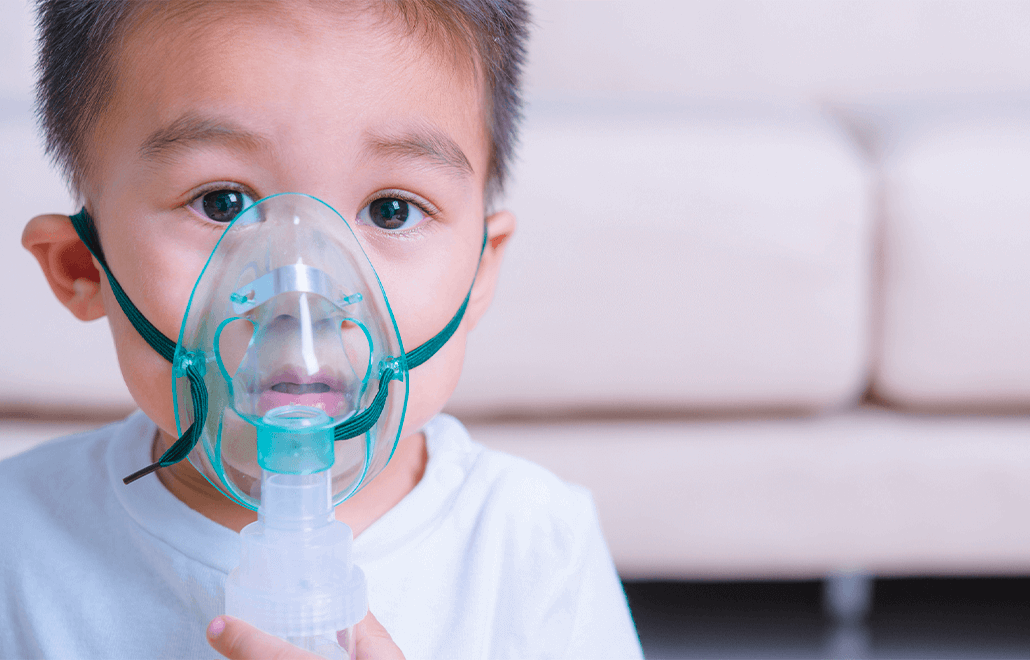
21 Nov RSV vs. the Common Cold: How to Tell the Difference and When to Seek Medical Care
As parents, it’s only natural to worry when our little ones aren’t feeling their best. During the fall and winter months, children are more susceptible to respiratory infections, and two common culprits are Respiratory Syncytial Virus (RSV) and the common cold. Both can cause similar symptoms, making it challenging for parents to differentiate between the two. Understanding the differences and knowing when to seek medical care is essential for ensuring your child’s well-being.
The Common Cold: A Familiar Foe
The common cold is, well, quite common. It’s caused by various viruses, such as rhinoviruses, and typically presents with the following symptoms:
- Runny or Stuffy Nose
- Sneezing
- Coughing
- Sore Throat
- Mild Headache
- Low-Grade Fever (in some cases)
- General Fatigue
Most colds are mild and last for about a week, although some may linger a bit longer. They are usually not a cause for major concern and can be managed with rest, fluids, and over-the-counter cold remedies if recommended by your pediatrician.
RSV: A More Serious Threat
RSV is a different story. It is a virus that causes respiratory tract infections, primarily affecting infants and young children. The symptoms can be similar to a cold but often more severe. They include:
- Severe Coughing
- Wheezing
- Rapid Breathing or Difficulty Breathing
- High Fever
- Irritability
- Refusing to Eat
- Dehydration
While RSV often starts with cold-like symptoms, it can progress to more severe breathing difficulties. RSV is particularly dangerous for premature infants, children with weakened immune systems, and those with chronic medical conditions.
Differentiating Between RSV and the Common Cold
Differentiating between RSV and the common cold can be challenging, but some signs can help you determine when it’s time to consult a healthcare provider:
- Age: RSV is more common in infants and young children.
- Breathing: If your child has rapid, labored, or wheezing breaths, it may indicate RSV.
- Dehydration: Severe cases of RSV can cause dehydration due to difficulty feeding or increased fluid loss from fever and rapid breathing.
- Fever: While both RSV and colds can cause fever, RSV is more likely to lead to high fevers in children.
- Duration: Colds typically resolve in about a week, but if symptoms persist or worsen after that time, it’s worth consulting a healthcare provider.
When to Seek Medical Care
If you suspect your child may have RSV or the common cold, and their symptoms are causing significant distress, it’s crucial to contact your pediatrician. Seek immediate medical care if your child:
- Struggles to breathe or has rapid, shallow breathing.
- Shows signs of dehydration, such as sunken eyes, dry mouth, or decreased urine output.
- Is lethargic, irritable, or refuses to eat or drink.
Your pediatrician will assess your child’s condition and may recommend treatments or hospitalization, especially for severe RSV cases.
Preventing RSV and Colds
The best defense against RSV and colds is prevention:
- Frequent Handwashing: Teach your child to wash their hands regularly.
- Avoid Close Contact: Minimize contact with individuals who have cold symptoms.
- Vaccination: For certain children at high risk, there’s a preventive antibody called Palivizumab for RSV.
- Maintain a Clean Environment: Regularly clean and disinfect toys and surfaces to minimize virus transmission.
Remember, the best approach is to consult with your pediatrician if you have any concerns about your child’s health. They can provide guidance tailored to your child’s specific situation.
At Continuum Pediatrics, we’re dedicated to supporting your child’s health. If you have any questions or concerns about RSV, the common cold, or other pediatric health issues, please don’t hesitate to reach out to our team. Your child’s well-being is our top priority, no matter the season.

